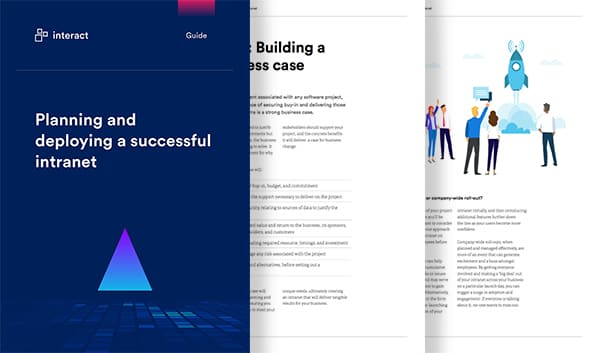Employee requests can be difficult to manage, especially when you have to say no. But a denied request doesn’t have to translate into hard feelings or discouragement. With the right strategies, you can turn these situations into opportunities for learning, transparency, and empathy in the workplace. Here’s how.
Today’s employees are increasingly vocal about their needs and preferences – and that’s generally a good thing. Clear communication about employee expectations creates stronger cultures and prompts organizations to prioritize employee satisfaction, which has far-reaching benefits. However, high expectations can be difficult to manage and may lead to an increase in employee requests, some of which you’re unable to grant. It’s fine to say no, but you’ll need to deliver your refusal in the right way to avoid damaging morale.
Although the Great Resignation has been declared over, it opened our eyes to the fact that today’s employees are less likely to put up with a company that falls short of their expectations. This is especially true among Millennial and Gen Z employees. Younger workers tend to stay in roles for shorter lengths of time than Baby Boomers or Gen Xers and are more likely to act on new job opportunities, so it’s crucial to satisfy their needs before they look elsewhere.
What do employee requests look like today? A study from Gartner revealed factors that employees consider “very important” in their jobs. The top-ranking responses included pay (64% ranked this “very important”), work-life balance and wellbeing (61%), the ability to utilize their top skills (58%), and attention to DE&I (42%). It shouldn’t come as a surprise that these factors show up a great deal in the form of employee requests.
Free guide: Essential internal communications strategy
Because employees may walk away if they feel they aren’t being listened to and respected, it’s essential to take employee requests seriously and make accommodations where appropriate. Yet it’s not possible to give every employee the answers they’re looking for all the time. You may not have the budget or other resources to acquiesce. Perhaps the request doesn’t align with company values, or you don’t want to set a precedent by making an exception to organizational policy.
Needing to say no to a request can put you in a difficult position. You’ll need to handle it delicately to avoid dissatisfaction, and in some cases, to prevent employees from moving on to other organizations. If you do it right, your employee will understand that there are no hard feelings, and may even come away feeling empowered. Here are eight tips for how to say no to employee requests without sacrificing morale.
Set yourself up for success
When you need to say no to an employee request, it helps to have a strong foundation laid in the form of policy. Employees will be more understanding if your responses can be backed up by an official company, department, or team stance on that issue. You may even be able to prevent a request from being made in the first place if employees are able to look up the rules themselves before placing their inquiries. There will always be individuals who make requests that they know run counter to policies, but at least they’ll be prepared for the answer you give and the reasoning behind it.

Utilize your digital technology to help get the word out about company policies in areas such as salary reviews, benefits, or rules around taking PTO. Hosting this information on a searchable platform such as your intranet gives employees all the details they need at their fingertips.
Acknowledge and clarify
Feeling heard is a crucial need for employees, correlated with high engagement and feelings of effectiveness at work. It’s important that employees who make an unsuccessful request don’t feel brushed off or dismissed.
A seemingly knee-jerk refusal can cause feelings of disrespect. Even if you have a very good reason for saying no, you’ll need to communicate that you’ve at least considered what the employee has to say. That means listening, asking questions to obtain any necessary facts, and clarifying exactly what is being asked. After having a conversation, you can calmly explain why you’re not able to grant what the employee wants (more on that later). Though the employee may still be disappointed with the result, the rejection will sting less if they know you’ve thoroughly considered their points.
Free guide: Essential internal communications strategy
Give a legitimate reason
Remember the infuriating days of your parents rebutting your “why?” with that dreaded phrase, “because I said so?” Neglecting to provide reasoning leaves the requestee feeling powerless. If you’re able to explain the (legitimate) reason behind your refusal, you’ll be met with less pushback and cause less frustration for the employee.
Be clear about why you’re declining the employee’s request. Is it a budget issue? Does the request go against a specific company policy? Has the same idea been tried in the past and led to negative results? Share all of this with the employee and they’ll be more likely to see things from your perspective.
Offer a plan B
If there’s something specific about an employee’s request that makes it untenable, try to work with them on an alternative. For example, if the timing doesn’t work for an extended vacation request, suggest when a better time would be. Alternatively, let them take the time away, but plan a few remote work days throughout their trip so that they can check in with the team.

Opening up the conversation and showing that you’re willing to compromise on the matter shows employees that you truly want to meet their needs, even if it can’t be in the exact way they envisioned.
Don’t leave employees hanging
No one likes to be the bad guy. It’s especially hard to say no when you care about employees and want to make them as happy at work as possible. But sometimes, your hands are tied and there’s no possible way to say yes.
The worst thing you can do is to give employees false hope by drawing out the time it takes to say no. Communicate your refusal as early as possible, so the employee can come to terms with your answer, and you can both move on. They’ll appreciate you being upfront, and you’ll stress less about delivering the bad news.
Free guide: Essential internal communications strategy
Express empathy without wavering
Keeping the human side of an employee request front of mind is essential, whatever your decision is. Put yourself in the employee’s shoes and look at things from their perspective. Human-centered leadership is a major workplace trend for 2024, with 82% of workers saying it’s important for their organization to see them as a person, not just an employee. This makes it more important than ever to empathize with employees’ requests and express that you understand where they’re coming from.
For example, if an employee asks for new technology that you don’t have the budget for right now, it’s fine to acknowledge their frustration. Communicate that you understand why they’re asking, and that you’re sorry to share that it’s just not in the cards right now. Afterward, don’t forget about the need they’ve expressed – it may be possible to meet it in another way or to revisit the request in the future.

Acknowledging an employee’s frustration or other tough feelings while standing your ground is a delicate line to walk. You’ll want to show you care without opening up any opportunities for pushback or false hope. This can be difficult to master at first, but with practice, you’ll learn to be understanding yet firm.
Provide feedback and express gratitude
Oftentimes employee requests are personal and tied to accomplishments, projects, or issues that the individual is particularly passionate about. This can lead to a delicate situation when you have to say no, but simple appreciation and recognition can help soften the blow.
Perhaps an employee is proud of how a project has gone and wants to take it to the next level, yet the team has too many other priorities to make it happen. Or maybe they’ve been putting in extra effort and getting strong results this quarter, but you won’t be able to grant a raise due to budget constraints. In these cases, a refusal may seem like a rejection — the employee may feel as though all their efforts have gone unseen.
Avoid this by acknowledging the hard work they’ve done. Provide positive feedback as you explain why you’re turning the request down and follow up with more praise in the days and weeks after the conversation is over. Employee recognition will help separate the individual’s self-worth from the fact that their request was denied and go a long way toward preventing a decrease in motivation going forward.
Keep the bigger picture in mind
If the employee in question is showing signs of being put out, frustrated, or angered by your decision, address these feelings directly and try to promote an open forum for discussion. When resentment simmers, it can breed disengagement and have negative repercussions for your company culture.
Some requests, even if they must be denied, are signs of larger problems with an employee’s role, their overall satisfaction at work, or the organization’s policies. It’s your job to pay attention and use this as an employee listening opportunity. Get to the bottom of exactly what your employee is unhappy about and consider whether others may feel the same way. It’s possible (and even likely) that this individual isn’t alone in their dissatisfaction.

Is the request a wake-up call to a policy that needs revising or a cultural norm that needs to be clarified? Although you may have to say no right now, it could bring your attention to a weak point that calls for action. Looking at denied requests through a broader lens gives you the opportunity to use them to improve circumstances for all employees.


